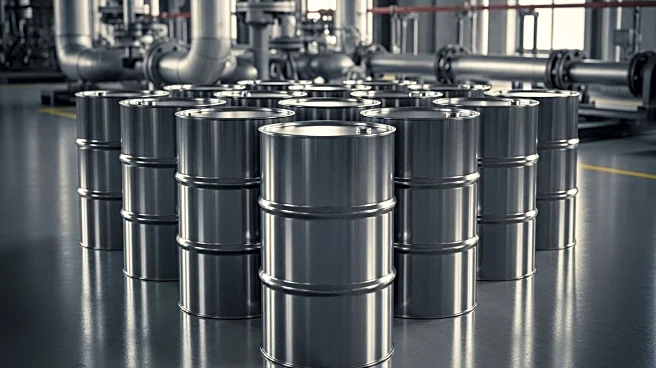What is the story about?
What's Happening?
OPEC+ has decided to increase its oil production by 137,000 barrels per day starting in November, a move that was smaller than market expectations. This decision comes amid predictions of a supply surplus in the fourth quarter and next year. The announcement led to a rise in oil prices, with Brent crude futures increasing by 23 cents to $65.70 a barrel and U.S. West Texas Intermediate crude climbing 21 cents to $61.90. The group's cautious approach reflects concerns over global demand and geopolitical tensions, particularly the ongoing conflict between Russia and Ukraine, which has impacted energy assets and created uncertainty over Russian crude supply.
Why It's Important?
The modest increase in oil output by OPEC+ is significant as it highlights the group's cautious stance in managing global oil supply amid uncertain demand forecasts. The decision impacts global oil prices, which have been volatile due to geopolitical tensions and economic factors. The increase in production is part of a broader strategy by OPEC+ to manage supply and demand dynamics, which is crucial for stabilizing the market. The move also underscores the influence of geopolitical events, such as the Russia-Ukraine conflict, on energy markets, affecting stakeholders ranging from oil producers to consumers facing fluctuating fuel prices.
What's Next?
The market will closely monitor the impact of OPEC+'s decision on global oil prices and supply dynamics. Analysts suggest that any slowdown in demand due to weak economic growth, potentially exacerbated by U.S. trade tariffs, could lead to a surplus. Additionally, geopolitical developments, particularly in Russia, will continue to influence market stability. Stakeholders, including governments and energy companies, will need to adapt to these changes, potentially adjusting their strategies to mitigate risks associated with supply fluctuations and price volatility.
















